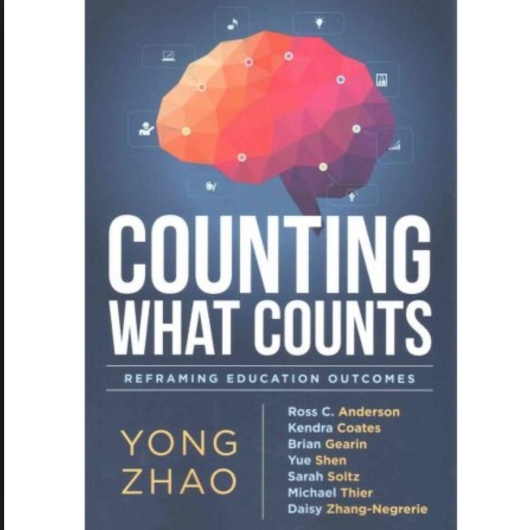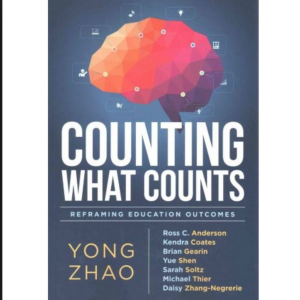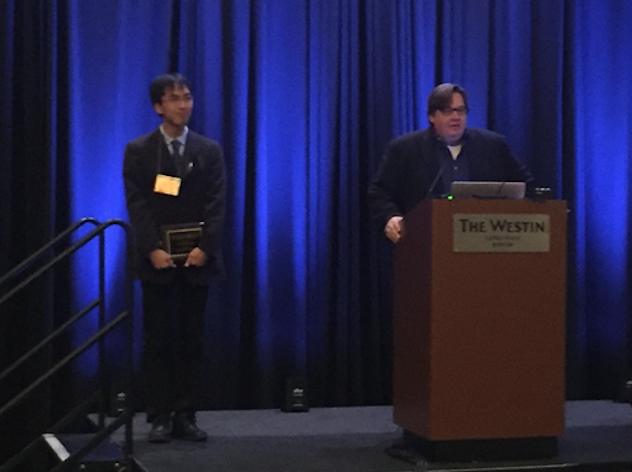It is common knowledge that parents play a vital role in their children’s development. However, we are slowly coming to understand just how vital this role is.
Teachers understand this connection better than anyone; we interact with our students’ parents, and we also see how parents interact with their children. We teachers in turn are able to make anecdotal connections between parenting styles and how children carry themselves in and out of school.
Research is catching up to what teachers have known since the earliest days of the profession. Scientists have begun to tease out certain traits that help children do well in school and in life, and are going one step further to investigate how these traits are developed, including the role that caretakers might play.
One recent example of this growing body of research examines the development of a child’s intelligence mindset–the belief about whether intelligence is fixed or malleable–which has been found to influence motivation and learning. When faced with obstacles or difficulties, those with a growth mindset, who believe that their intelligence can be improved through effort, tend to persevere [1,2]. They do not view obstacles as discouraging, but rather, as informative and motivating [3].
Those with a fixed mindset, on the other hand, do not belief that intelligence can be improved with effort. Thus, those with a fixed mindset tend to be discouraged–not informed and motivated–by obstacles.
How, though, might parents instill a growth mindset in their children? In a paper published this spring, Kyla Haimovitz and Carol Dweck seek to investigate just that [4]. They hypothesize that it is in fact not the parents’ intelligence mindset that influences that of the child; an adult’s intelligence mindset is all but invisible and thus not readily adopted by the child. Rather, it is a parent’s failure mindset–their view of failure as being either enhancing or debilitating–that becomes visible to a child through interactions, and which thus plays a larger role in shaping children’s belief about their intelligence.
Parents’ Intelligence Mindset Isn’t Visible
The series of studies presented in the paper show some important correlations. To begin with, the researchers found no significant correlation between parents’ reports of their own intelligence mindsets and the children’s perception of their parent’s intelligence mindsets; children could not accurately perceive whether or not their parents viewed intelligence as something that is fixed or as something that can be improved. Just as the authors had previously guessed, parents’ intelligence mindsets are invisible to their children.
Additional findings from these studies provide some insight into why parents’ intelligence mindsets might not be seen by their children. When presented with the hypothetical situation of their children bringing home a failing grade, parents were given options to respond in two primary ways: to show concern over their children’s poor performance, or instead, to show concern over how their children could use the failing grade as a learning opportunity (the latter of which would be more in-line with a growth mindset). These studies found that parents’ view of intelligence did not predict how they would respond.
Even if parents believe that intelligence can be improved through effort, they still may respond to the performance of their children in ways that are not representative of this outlook. This is a fundamental concept for this paper; children do not see and are thus not influenced by their parents’ beliefs, only by their actions.
Parents’ Failure Mindset Is Visible
If not their intelligence mindset, how might parents influence their children’s view on intelligence? The authors suggest it is the parents’ failure mindset–their view of failure as being either debilitating or enhancing–which is visible to their children, and which thus plays a larger role in forming children’s beliefs about intelligence. Unlike parents’ intelligence mindsets, children were in fact able to predict what their parents thought about failure.
Parents’ Failure Mindset Predicts Their Response
Presumably, parents make their failure mindset visible to their children through their reactions and responses in various situations. More precisely, the studies found that parents’ failure mindset predicts how they respond to their children in situations where their children have done poorly. The more that parents believe that failure is debilitating, the more likely they are to react with concerns of their child’s performance or ability, perhaps by pitying their children, doubting their ability, and/or comforting them. On the other hand, parents with a failure-is-enhancing perspective are more likely to respond to their children’s failure with support for improvement, discussing with them what they could have learned from the experience and how they can get better.
Parents’ Responses Predict Child’s Intelligence Mindset
Consider the message that these reactions send to a child. Might these reactions play a role in shaping what children think about their own abilities? Haimovitz and Dweck’s findings support this hypothesis. Of the variables measured, the strongest predictor of children’s intelligence mindset was parents’ response to their failure: either focusing on the children’s performance or on how their children could improve.
While a parent’s failure mindset is also a strong predictor of a child’s intelligence mindset, parents’ failure mindset is an even stronger predictor of how they tend to react in these scenarios, which then goes on to most strongly predict the child’s intelligence mindset.
Parent’s Failure Mindset
↓
Parent’s Response to Child’s Failure
↓
Child’s Intelligence Mindset
Why is it that a parent’s response is such a strong predictor of the child’s intelligence mindset?
The studies reveal that when parents place such a strong emphasis on their children’s performance, children tend to believe that this is how their parents want them to prove their abilities: through their performance. The researchers suggest it is this perception of their parents’ beliefs that leads children to believe that intelligence is fixed. Parents’ strong emphasis on their children’s performance leads the children to believe that it is the performance that is most important, and not their learning.
Takeaway 1 – Take On a Learning-Orientation (While Maintaining Expectations)
Parents’ responses to their children’s performances are powerful predictors of the children’s belief about the malleability of intelligence. If we are to interpret these correlations favorably, we ought to use occasions of poor performance as learning opportunities for our children. We should let them know that these scenarios present opportunities to get better.
It is also worth mentioning that, in addition to the importance of maintaining a focus on learning and improvement, studies have found that, academically, parents’ expectations for their children’s performances predict the children’s performances [5].
There is a fine line that parents and teachers need to walk: they must maintain expectations while also conveying the notion that poor performances are not indicators of ability, but rather, opportunities to learn how to improve.
Takeaway 2 – Work through the Parents
While the findings in this paper highlight a specific and important correlation, Haimovitz and Dweck also reference the large body of work that underscores the importance of the role that parents play in their children’s development [6,7,8]. Schools may be able to reinforce what they are doing by more deeply involving parents, encouraging them to strengthen at home various aspects of what the teachers are working on at school.
I envisage a (perhaps utopian) future wherein schools, especially those focusing on early childhood, view building the capacity of caregivers as vital to their work in enabling their students to realize their full potential. Many practitioners might understand why this would be desirable, and I believe that research will continue to highlight the strong influence that caretakers have on children’s developmental trajectories.
Takeaway 3 – The Earliest Years Matter
After having a few perspective-altering “Aha!” moments on how formative the earliest years of life are, I tend to view most everything through this lens. This is especially the case here. The average age of the children from the studies in this paper was about ten years old. By that age, children have already developed a belief about whether or not their intelligence is fixed or malleable, and this mindset in turn has already had an effect on their learning.
It is doubtful that children develop this belief overnight. In fact, I would argue that they begin to formulate their beliefs as early as they can understand, which occurs well before they can speak, and is then shaped through the daily interactions they have with others. It has been shown that the first years lay a crucial foundation for development across the lifespan, and it is during this time that we must also be deliberate about what we convey to our children about many things–including how to handle failure.
Conclusion
Future research will continue to underscore what many practitioners already know: in order to best enable children to reach their full potential, parents must be made a part of the equation. The paper presented in this article sheds some light on one aspect of parenting, however small, yet greatly formative. If these findings are at all indicative of the potential that lies in the interactions that caretakers have with their children, supporting parents in supporting their children from day one shows immense promise in improving children’s outcomes.
References
- Blackwell, L. S., Trzesniewski, K. H., & Dweck, C. S. (2007). Implicit theories of intelligence predict achievement across an adolescent transition: A longitudinal study and an intervention. Child Development, 78, 246–263.
- Robins, R. W., & Pals, J. L. (2002). Implicit self-theories in the academic domain: Implications for goal orientation, attributions, affect, and self-esteem change. Self and Identity, 1, 313–336.
- Dweck, C. S., & Leggett, E. L. (1988). A social-cognitive approach to motivation and personality. Psychological Review, 95, 256–273.
- Haimovitz, K., & Dweck, C. S. (2016). What predicts children’s fixed and growth intelligence mindsets? Not their parents’ views of intelligence but their parents’ views of failure. Psychological science, p.1-11. doi:10.1177/0956797616639727
- Lane, K. L., Wehby, J. H., & Cooley, C. (2006). Teacher expectations of students’ classroom behavior across the grade span: Which social skills are necessary for success?. Exceptional Children, 72(2), 153-167.
- Duncan, A. (2010). Looking in the mirror: Final remarks of Secretary Arne Duncan to the Mom Congress. Retrieved from http://www2.ed.gov/news/speeches/2010/05/05032010.html
- Hill, N. E., & Taylor, L. C. (2004). Parental school involvement and children’s academic achievement: Pragmatics and issues. Current Directions in Psychological Science, 13, 161–164.
- Pomerantz, E. M., Grolnick, W. S., & Price, C. E. (2005). The role of parents in how children approach achievement: A dynamic process perspective. In A. J. Elliot & C. S. Dweck (Eds.), Handbook of competence and motivation (pp. 259– 278). New York, NY: Guilford Press.




















